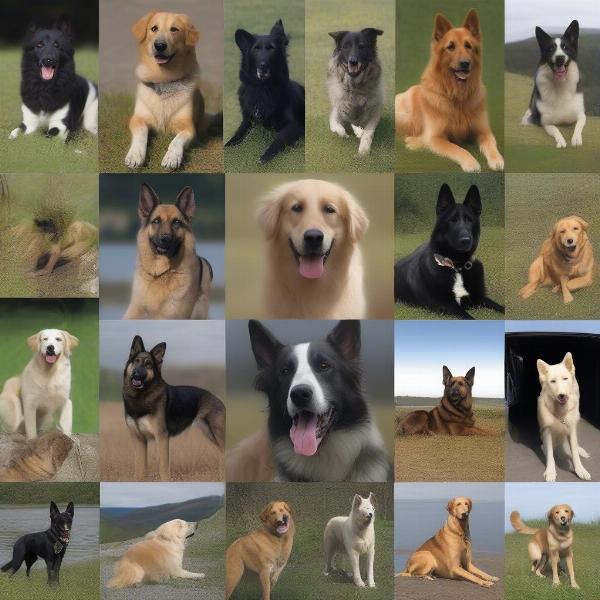Scout and the rescue dogs encompass a heartwarming and often heroic world. This article explores the various aspects of rescue dogs, from the rigorous training they undergo to the diverse breeds that excel in this field, and how you can potentially support or even join this life-saving community. We’ll delve into the commitment and dedication required to be a part of a rescue dog team, highlighting the crucial role these dogs play in saving lives.
Understanding the World of Rescue Dogs
Rescue dogs are highly trained canines that assist in various search and rescue operations. Their exceptional sense of smell, agility, and unwavering dedication make them invaluable in locating missing persons, survivors of natural disasters, and even detecting avalanche victims. These dogs work closely with their handlers, forming a strong bond built on trust and mutual understanding. The training process is intensive, requiring both the dog and handler to commit significant time and effort. It involves obedience training, scent discrimination, and specialized skills depending on the type of rescue work they will be undertaking.
Breeds that Shine in Search and Rescue
While any dog with the right temperament and physical capabilities can potentially become a rescue dog, certain breeds are more predisposed to excel in this field. German Shepherds, Labrador Retrievers, and Golden Retrievers are often favored for their intelligence, trainability, and physical endurance. Border Collies, with their herding instincts and high energy levels, also prove to be excellent search dogs.  Different rescue dog breeds However, it’s essential to remember that individual temperament and drive play a crucial role, regardless of breed. A dog’s inherent desire to work and please its handler is paramount to success in rescue work.
Different rescue dog breeds However, it’s essential to remember that individual temperament and drive play a crucial role, regardless of breed. A dog’s inherent desire to work and please its handler is paramount to success in rescue work.
What it Takes to Be a Rescue Dog Handler
Becoming a rescue dog handler demands dedication, patience, and a genuine love for dogs. The training is demanding, requiring handlers to learn advanced canine handling techniques, first aid, and navigation skills. Handlers must also be physically fit and able to withstand challenging conditions often encountered during search and rescue operations. The bond between a handler and their dog is critical, as they rely on each other completely in high-pressure situations. Effective communication, trust, and unwavering teamwork are the foundations of a successful rescue dog team.
How You Can Get Involved
Even if you’re not ready to become a handler, there are still ways to contribute to the world of rescue dogs. Many organizations rely on volunteers for various tasks, from fundraising to administrative support. Donating to reputable rescue dog organizations provides crucial funding for training, equipment, and operational costs. You can also support local search and rescue teams by spreading awareness about their work and the vital role they play in our communities.
Conclusion
Scout and the rescue dogs represent a powerful force for good, bringing hope and saving lives in often desperate situations. The dedication and training required of both the dogs and their handlers are truly inspiring. Whether you aspire to join the ranks of rescue dog handlers or simply want to support their efforts, understanding the world of rescue dogs is a rewarding experience.
FAQ
- What kind of training do rescue dogs receive? Rescue dogs undergo rigorous training in obedience, scent discrimination, agility, and specialized skills depending on their area of expertise.
- What are the most common rescue dog breeds? Breeds like German Shepherds, Labrador Retrievers, Golden Retrievers, and Border Collies are often chosen for their intelligence, trainability, and physical attributes.
- How can I support rescue dog organizations? You can volunteer your time, donate funds, or spread awareness about their vital work.
- Is it difficult to become a rescue dog handler? Yes, it requires significant commitment, intensive training, and a strong bond with your canine partner.
- What qualities make a good rescue dog? Intelligence, trainability, a strong work ethic, and a good temperament are essential qualities for a successful rescue dog.
- Do rescue dogs need special care? Like all working dogs, they require a balanced diet, regular exercise, and consistent mental stimulation.
- How long does it take to train a rescue dog? The training process typically takes several months to years, depending on the dog’s aptitude and the complexity of the tasks they’ll be performing.
Related Articles:
About ILM Dog:
ILM Dog is your trusted international resource for all things dog-related. We provide expert guidance on dog breeds, health, training, nutrition, grooming, and much more. Whether you’re a new dog owner or a seasoned expert, ILM Dog offers reliable, practical advice to help you provide the best possible care for your canine companion. From choosing the right breed to understanding their nutritional needs, our comprehensive resources are designed to empower dog owners worldwide. Contact us today for personalized support and guidance: Email: [email protected], Phone: +44 20-3965-8624.